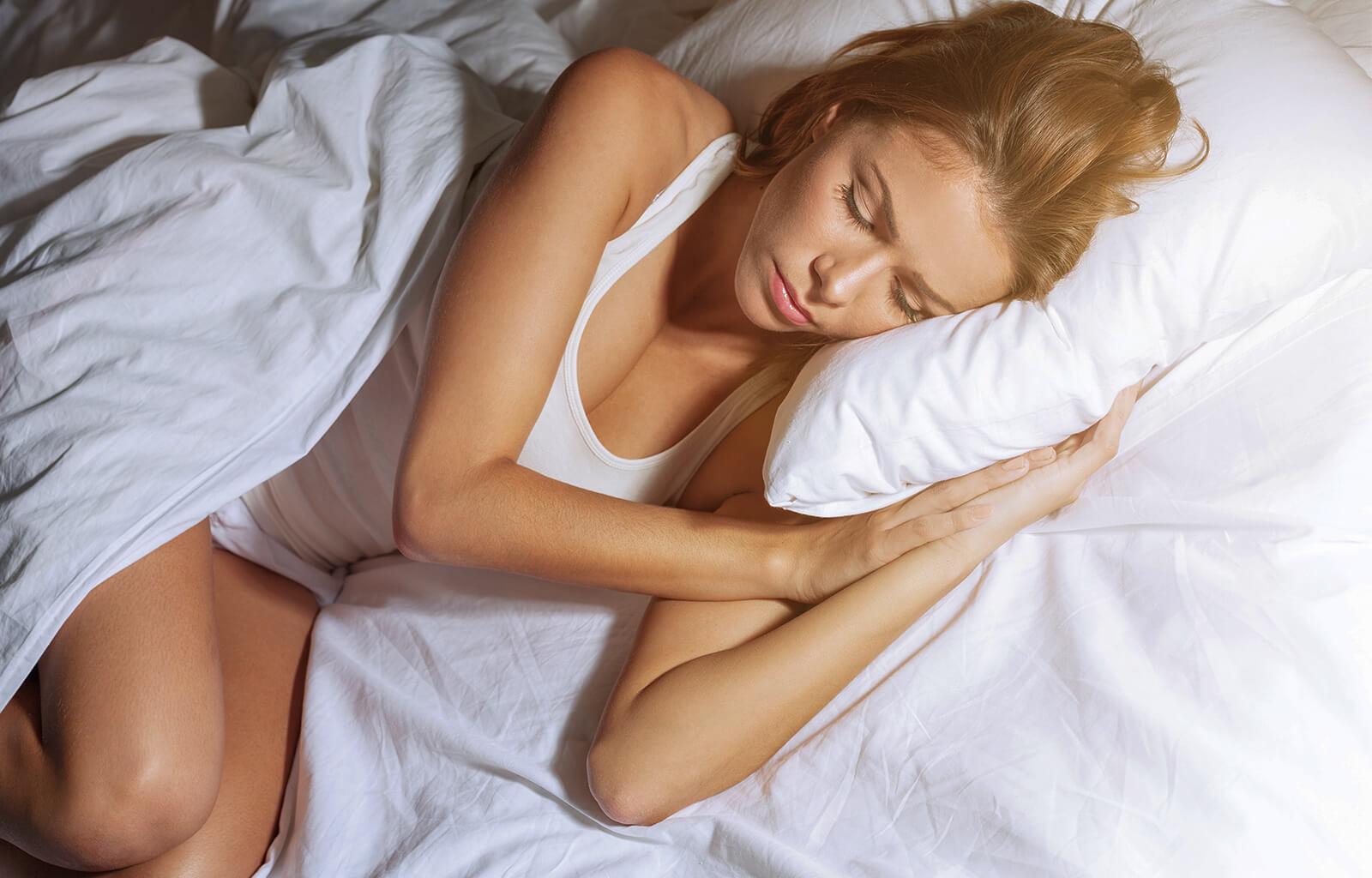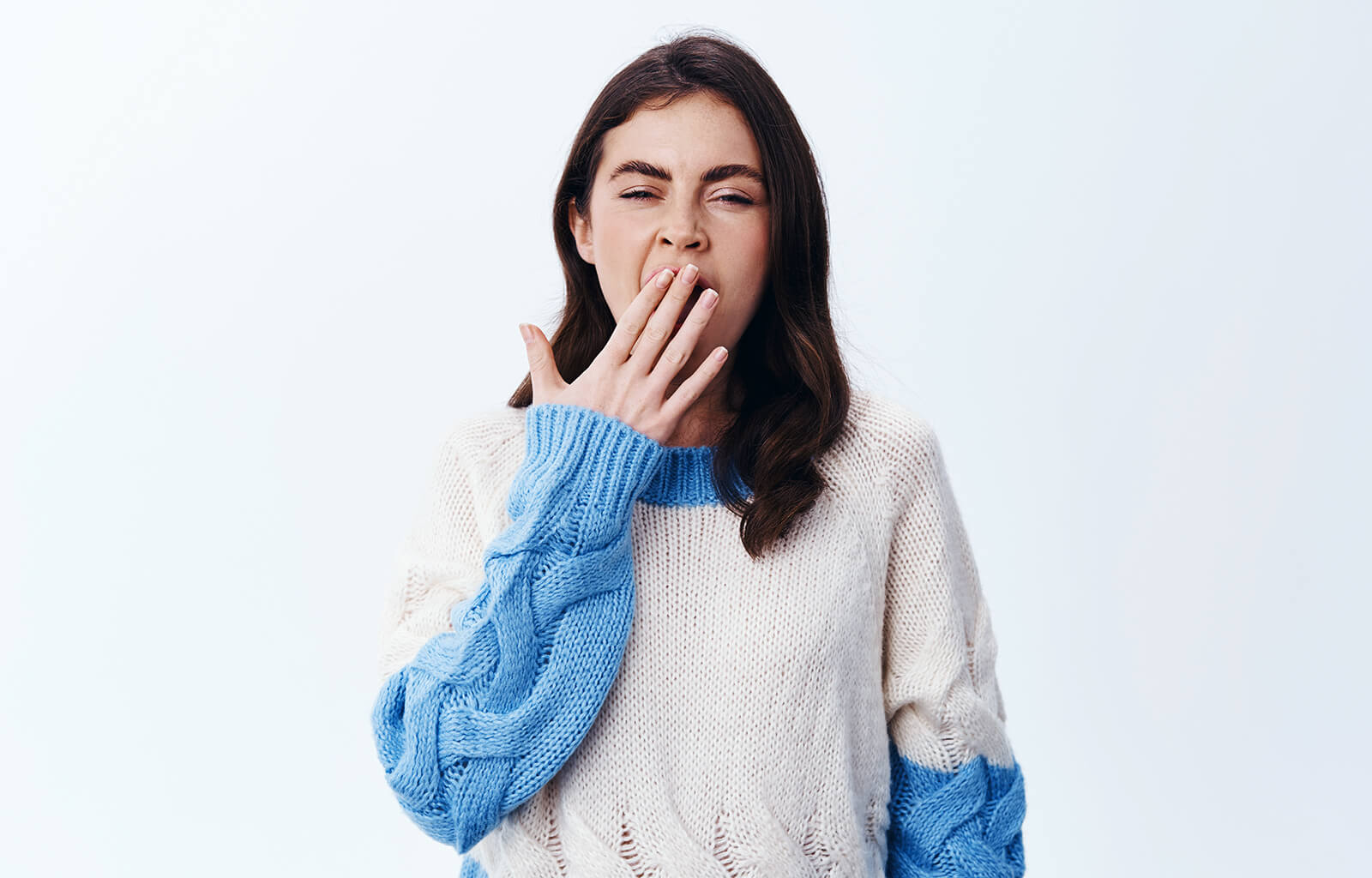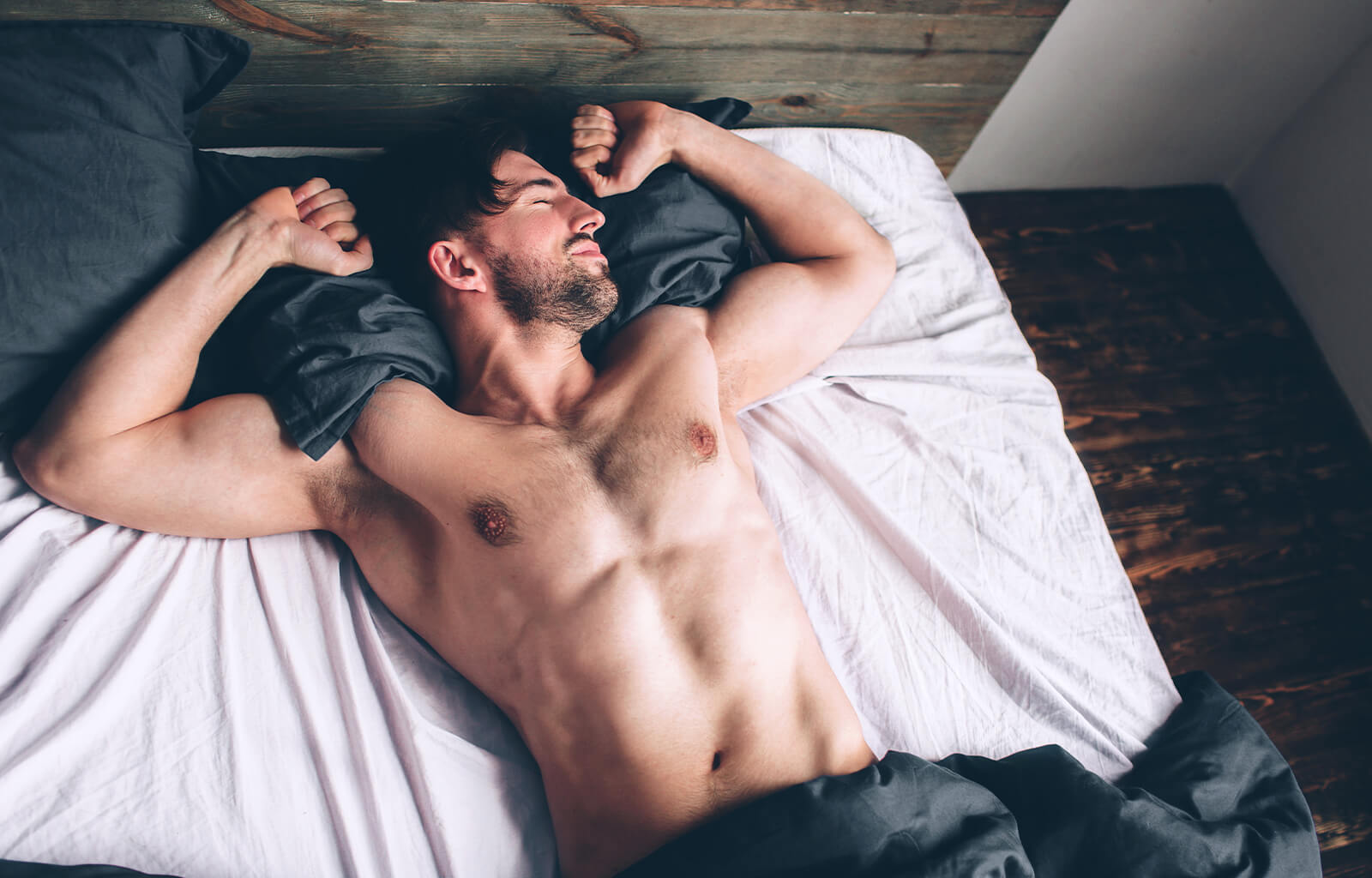
Sleep in heat - 6 expert tips
Summer, sun, insomnia! As the heat rises during the day, temperatures also rise at night, disrupting restful sleep. Discover here tips to support your sleep in summer and ensure restful nights and a good night's sleep despite the heat.
Table of contents
- Poor sleep in summer
- Why does heat disturb sleep?
- 6 tips for sleeping in the heat
- Conclusion
1. Poor sleep in summer
Phew, it's pretty hot! The long-awaited summer is showing its downside, especially at night. High temperatures make restful sleep a challenge for many people. The fact that we sweat profusely at night, wake up repeatedly, or can't fall asleep at all affects the duration and quality of our sleep, thus disrupting the important regeneration processes that determine our performance and health during the day. With a few simple tricks, you can quickly improve your sleeping conditions, protect your body from heat-related sleep disorders, and get restful sleep again despite the heat.
2. Why does heat disturb sleep?
Our body regulates its temperature towards the evening when we come to rest. In this way, the internal clock ensures that the Body temperature before sleep, and we prepare for sleep and falling asleep, among other things, by producing the sleep hormone melatonin. Throughout the night, body temperature continues to drop, reaching its lowest point between 2 and 3 a.m. before slowly rising again in the morning.

The generally recommended ambient temperature for restful sleep is between 16 and 18 degrees Celsius. When outside temperatures exceed 30 degrees Celsius during the day in summer, it's difficult to maintain a comfortable sleeping environment without air conditioning, especially in small bedrooms or attic apartments. The result: Our bodies can't lower their own temperature, we sweat, and consequently, it's difficult to rest.
3. 6 tips for sleeping in the heat
#1 Protect the bedroom from heat
Oppressive heat in the bedroom is caused not only by hot air, but also by sunlight shining through the windows during the day, heating the room and making it difficult to cool down at night. Therefore, make sure to keep your bedroom windows and doors closed all day and keep the room dark with blinds or thick curtains.
#2 Ventilate well and properly
Hot, stuffy air is detrimental to our circulation and our sleep. It's coolest outside between midnight and 7 a.m. Therefore, use the night and morning hours to get plenty of fresh air, and then close the windows when the daytime temperature rises again.
#3 Ensure adequate fluid intake

Especially in extreme heat, it's important to drink plenty of fluids! If our bodies lack fluids, heat regulation and exchange are disrupted, and important metabolic processes slow down. In summer, heavy sweating also leads to increased fluid loss at night. Therefore, try to drink plenty of fluids during the day and before bedtime.
Tip: However, avoid drinks high in sugar, caffeine, and alcohol in the evening, as they can hinder sleep. Cold drinks also promote heat production in the body, causing us to sweat even more. nightcap Lukewarm teas are therefore particularly suitable before going to bed.
#4 Take a lukewarm shower
A lukewarm shower in the evening helps to lower the body temperature so that your body can enters your "sleeping environment" and can prepare for sleep. Even though a cold shower may be more refreshing, you should avoid it. Cold water not only activates the nervous system but also constricts the blood vessels, preventing your body from releasing stored heat.
#5 Choose the right bed linen

In summer, choose particularly light and breathable bedding and pajamas. In hot weather, thin, cooling blanketsto protect against drafts and absorb sweat. Lightweight fabrics like cotton or silk, as well as special functional underwear, can help with temperature regulation, as they draw heat away from the skin and absorb sweat. You shouldn't go completely without clothing either, as sweat on the skin, combined with drafts, can promote tension and, due to the drop in body temperature at night, can also lead to colds.
#6 Maintain good sleep hygiene
If you generally get a good night's sleep and practice good sleep hygiene, you can also prevent heat-related sleep disturbances and avoid other factors from negatively impacting your sleep. With a regular sleep-wake rhythm and other basic rules for good sleep, you'll be optimally prepared for a restful night. With our additional tips, you can ensure a peaceful night even in summer. Herer Go to the sleep tips.
4. Conclusion
-
Heat harms our sleep because it prevents the natural drop in body temperature and disrupts natural sleep mechanisms.
-
Protect your bedroom from hot air and sunlight during the day, for example by using blinds and closed windows.
-
Ventilate at night and in the morning when the outside temperature is coolest.
-
Make sure you drink enough fluids during the day and before going to bed, preferably with lukewarm tea (avoid cold drinks!).
-
A lukewarm shower before bedtime cools you down and prepares you for sleep.
-
Use breathable, lightweight bedding and sleepwear to wick sweat and heat away from your body while still protecting you from drafts.
-
Practice good sleep hygiene so that your sleep is not negatively affected by other factors in addition to the heat.
Best wishes and see you soon!



3 Comments
Liebe Barbara,
der Kühleffekt ist intensiver, wenn die Decke ohne einen Bezug verwendet wird und direkt auf dem Körper liegt, da die Oberfläche speziell beschichtet ist. Wenn du Bettwäsche verwenden möchtest, würde ich dir einen möglichst dünnen und luftdurchlässigen Bezug empfehlen.
Liebe Grüße
Alisia von smartsleep®
Alisia Steiner
Hallo, meine Frage ist…
kann die cool blanket Decke mit Bettwäsche bezogen werden? Oder ist es eher nicht vom Vorteil?
Lieben Gruß
Barbara
Barbara
Der Körper reagiert auf die Signale der Umwelt!
Signal kalt: Ich muss mich wärmen.
Signal heiß: Ich muss mich abkühlen.
Wenn wir bei Hitze kalt duschen, welches Signal erhält der Körper: Es ist kalt! ich muss mich wärmen; also setzt er auf die Hitze noch Einen drauf und produziert selbst Wärme noch mehr Wärme !!!!!!!
Wenn wir dagegen heiß duschen, erhält er das Signal: Heiß!!! Er weiß dann, dass er kühlen muss!!! Und wir haben dann, was wir wollen.
Ich setz dann immer noch Was drauf, indem ich einen heißen Tee trinke!
Wo hab´ ich´s gelernt: Bei den Indios am Rio Napo in Peru.
Heinz
Leave a comment
This site is protected by hCaptcha and the hCaptcha Privacy Policy and Terms of Service apply.